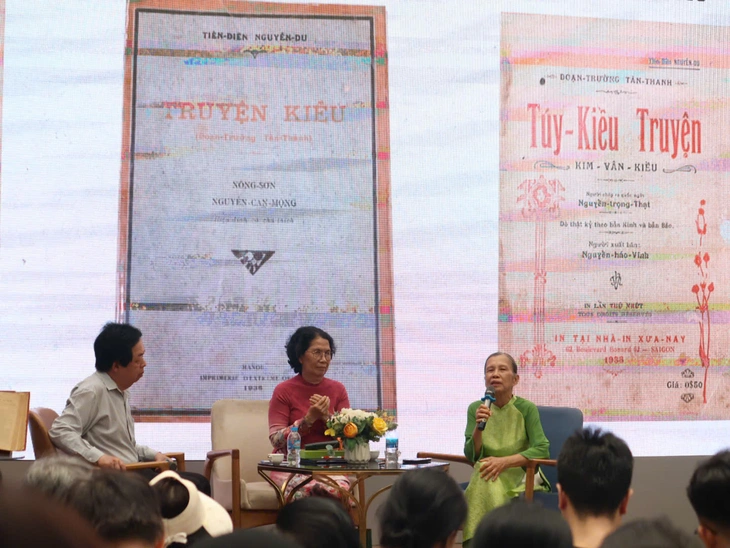
From left to right: collector Du Thanh Khiem, Dr. Quach Thu Nguyet, Dr. Bui Tran Phuong - Photo: HO LAM
On the morning of July 5, at Ho Chi Minh City Book Street, a special discussion on 150 years of the multifaceted Kim Van Kieu took place.
The speakers are collector Du Thanh Khiem; researcher, Dr. Bui Tran Phuong. Dr. Quach Thu Nguyet - former director and editor-in-chief of Tre Publishing House - narrates.
The discussion was an intimate conversation revolving around the vivid journey of The Tale of Kieu, not only as a literary work, but also as a research object, creative inspiration and cultural symbol in the Vietnamese consciousness.
Collecting Tale of Kieu is a way to express love for Vietnamese culture.
In the early days of the formation and popularization of the national language, The Tale of Kieu was one of the first works translated from Nom script and published in 1875, marking a turning point in the modernization process of Vietnamese literature and language.
Over the past 150 years, The Tale of Kieu has been reprinted, revised, edited, and illustrated in many forms, reflecting the richness of approaches and printing aesthetics through each period.
The exhibition 150 years of the journey of the Tale of Kieu in Vietnamese took place at Ho Chi Minh City Book Street from July 4 to July 6, introducing a selected collection of editions of the Tale of Kieu in Vietnamese, from rare prints from the late 19th century to outstanding fine art publications from the early 20th century.
At the same time, the exhibition also introduces contemporary editions, including fine art prints, modern illustrations and new attempts at presentation techniques.
Through each book, annotation, handwriting and printing style, viewers can admire the way previous generations have cherished, preserved and spread The Tale of Kieu as a living heritage.
Book collector Du Thanh Khiem shared with Tuoi Tre Online that he had found and purchased the book of the poem Kim Van Kieu Tan Truyen printed in 3 volumes, first translated into French by Abel des Michels and published in 1884 - 1885. The first two volumes were written in Vietnamese, parallel to the French translation of the poem and notes. Volume 3 was written in original Nom script.
"I have been collecting many types of precious books for a long time, but I still have a special affection for The Tale of Kieu . Collecting The Tale of Kieu is a pleasure that does not take time or money, and is also a way for me to express my love for Vietnamese culture."
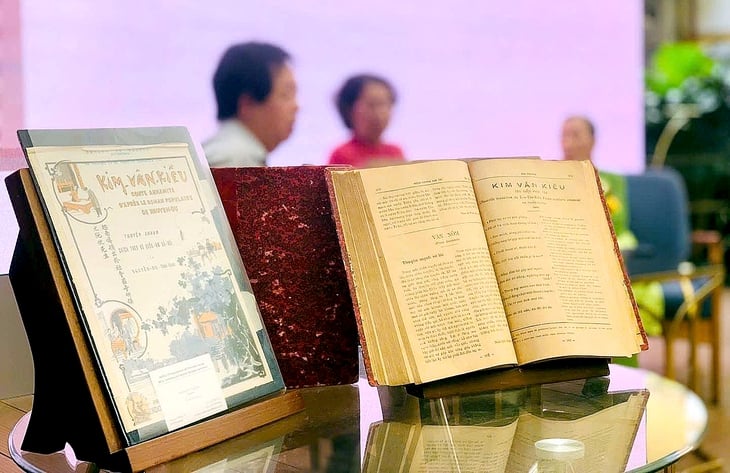
Many precious copies of The Tale of Kieu were introduced at the discussion - Photo: Ho Chi Minh City Book Street
It is a pity to be Vietnamese and not understand the Tale of Kieu.
According to Dr. Bui Tran Phuong, nowadays students are often taught and approached The Tale of Kieu through learning and interpreting quotes in a single sense, but in fact the way the great poet Nguyen Du applied and used the words in The Tale of Kieu has many different layers of meaning and nuances.
"For example, with the word "love", Nguyen Du opened up a whole world of emotions, from sympathy, pity to respect and honor for people.
Like the verse "Poor lost fate! / In the end, it's in your hands, who knows?" to talk about pity and sympathy for human fate.
As for the sentence "When sober, at the end of the night, startled, I feel sorry for myself", the word "feel sorry for myself" here is not just normal sympathy, but also respect for one's own dignity even in tragic circumstances".
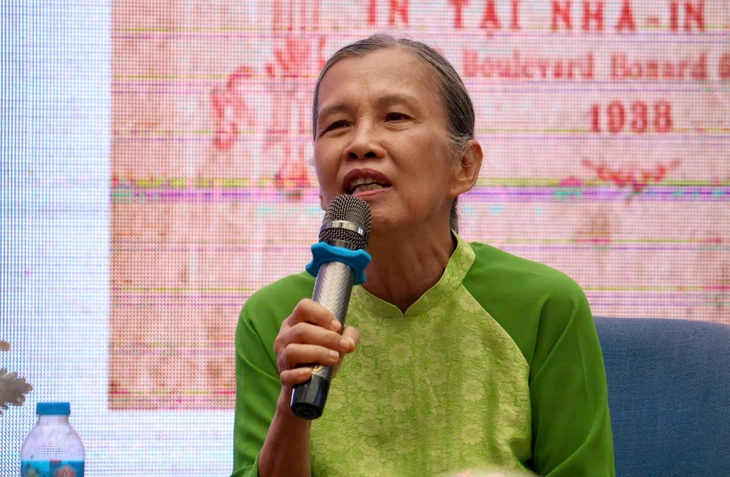
Dr. Bui Tran Phuong believes that it is a great pity for a Vietnamese person not to understand The Tale of Kieu - Photo: HO LAM
According to the speakers, many characters such as: Tu Ba, So Khanh, Hoan Thu... in The Tale of Kieu have become "social adjectives", just mentioning the characters' names is enough to know their personalities.
That liveliness is thanks to Nguyen Du's linguistic talent and ability to portray character psychology sharply.
Dr. Bui Tran Phuong affirmed: " The Tale of Kieu is not only a simple literary work but also a map of culture, language, and soul of the Vietnamese people. The more we understand and love it, the more responsible we are to preserve the Tale of Kieu . Understanding the Tale of Kieu is loving ourselves. And if you are Vietnamese but do not clearly understand the meaning of the Tale of Kieu , it is truly regrettable."
Source: https://tuoitre.vn/150-nam-kim-van-kieu-muon-mat-truyen-kieu-la-ban-do-van-hoa-ngon-ngu-va-tam-hon-20250705163519772.htm


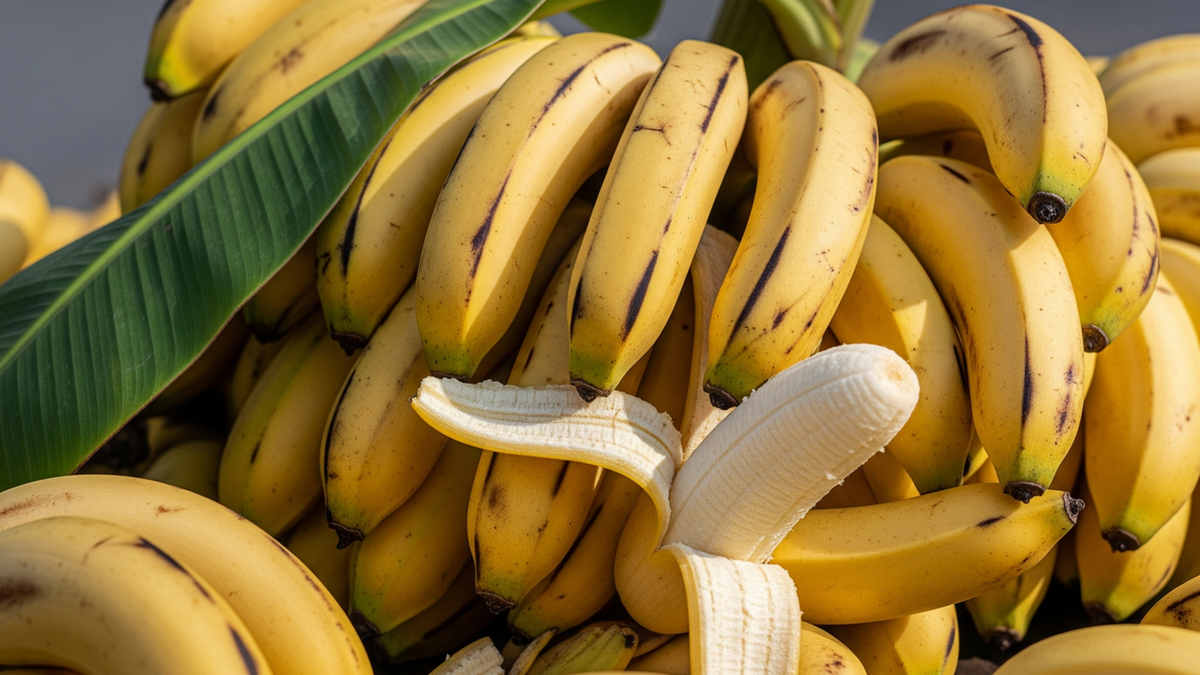


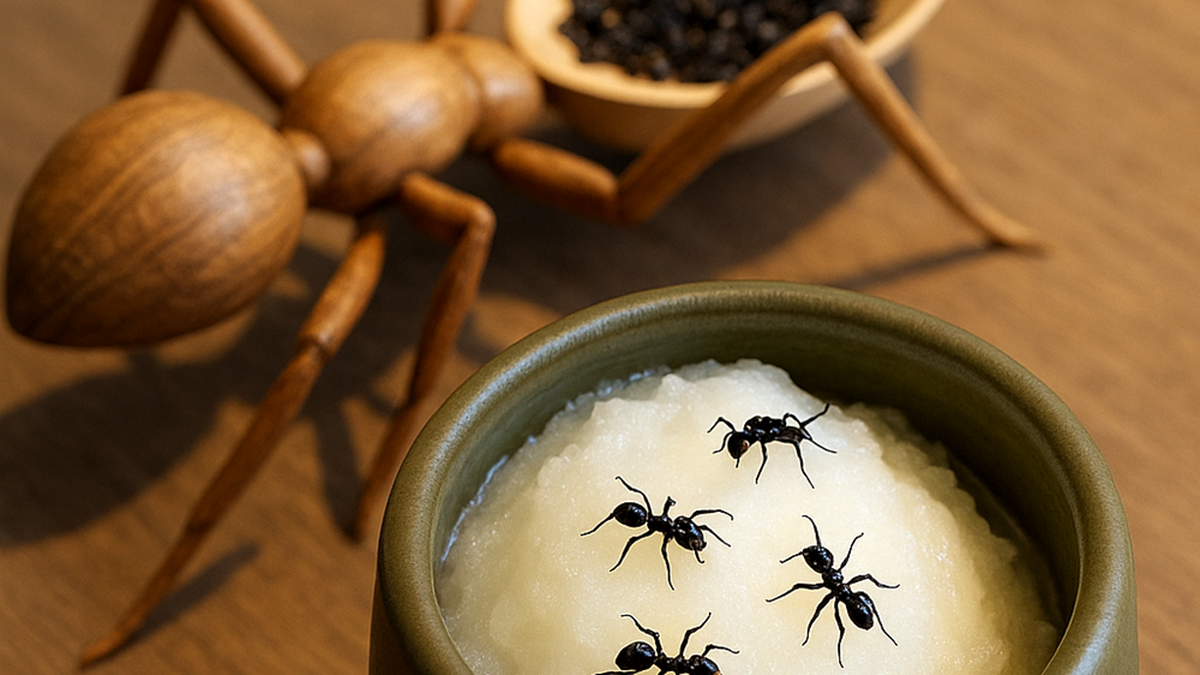
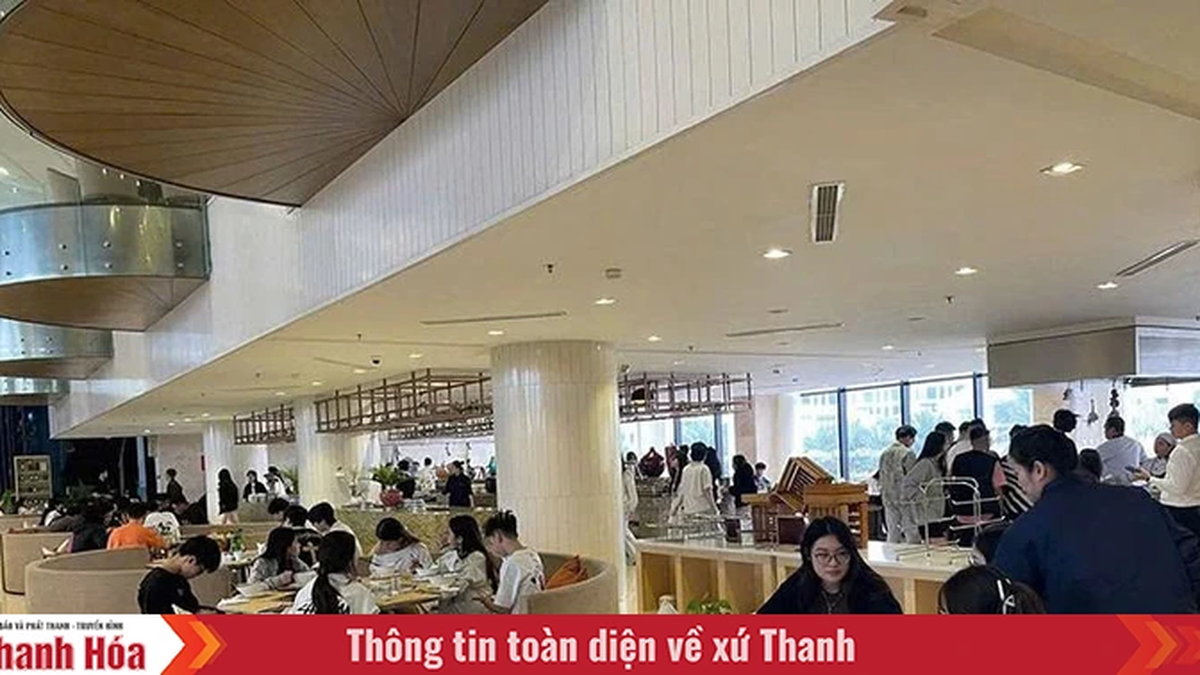

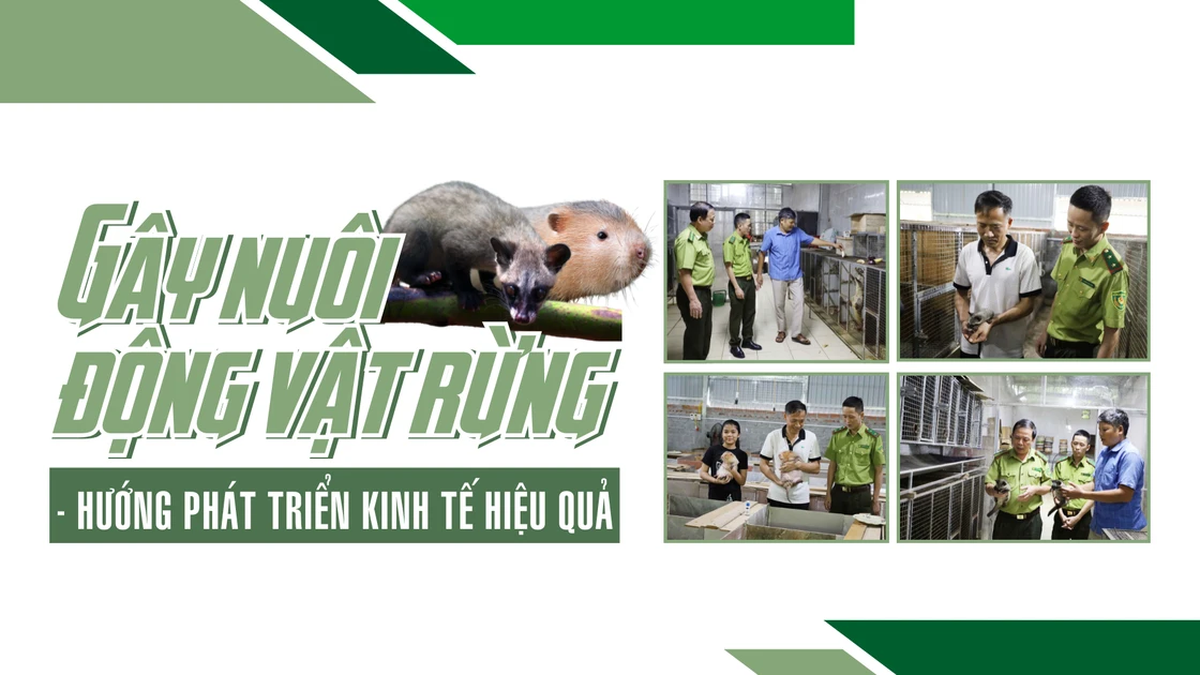


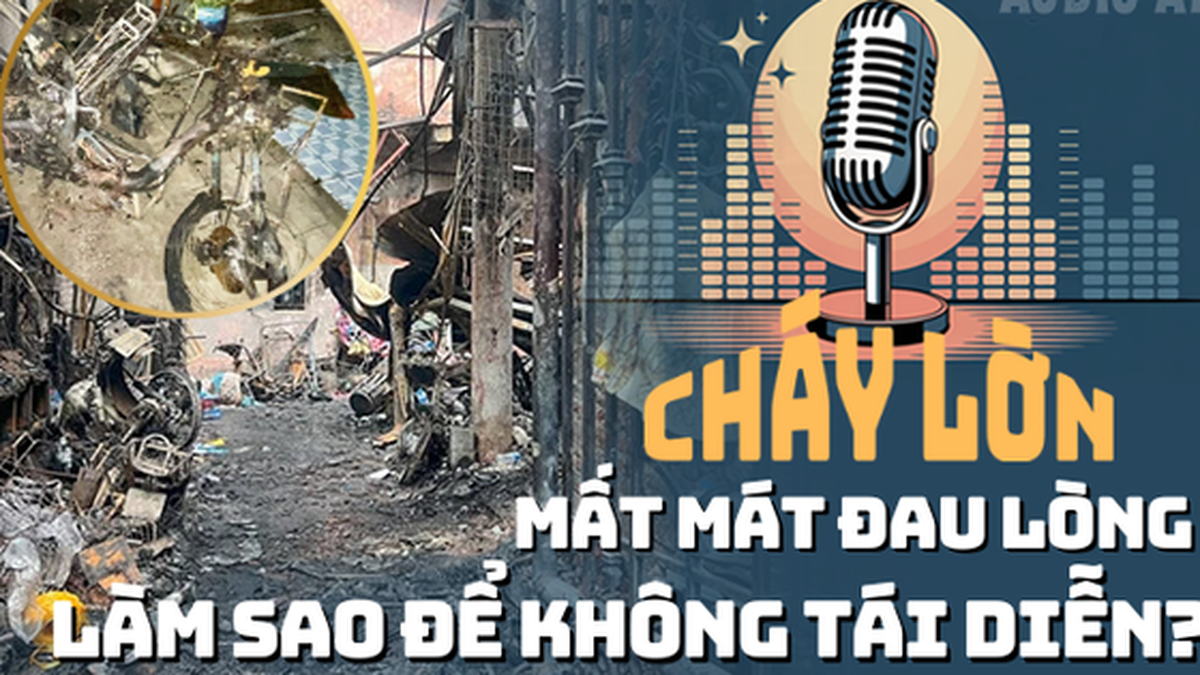










![[Photo] Gia Lai provincial leaders offer flowers at Uncle Ho's Monument with the ethnic groups of the Central Highlands](https://vphoto.vietnam.vn/thumb/1200x675/vietnam/resource/IMAGE/2025/7/9/196438801da24b3cb6158d0501984818)













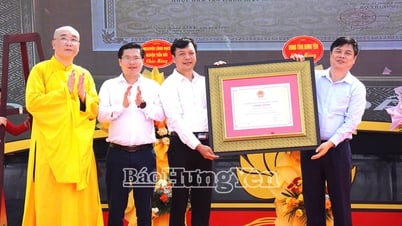








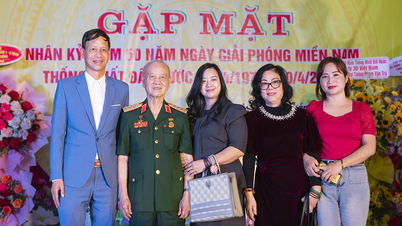






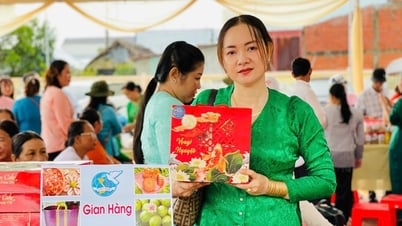








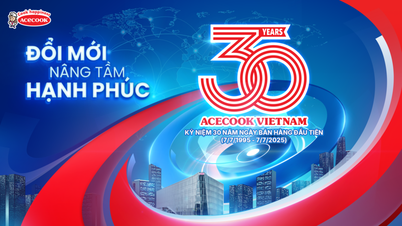



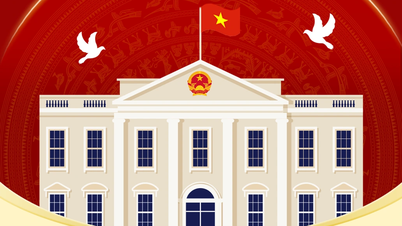

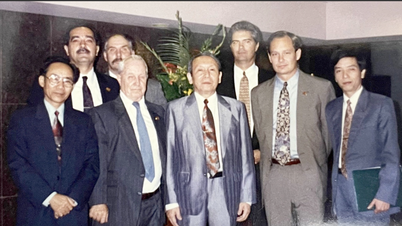
































Comment (0)